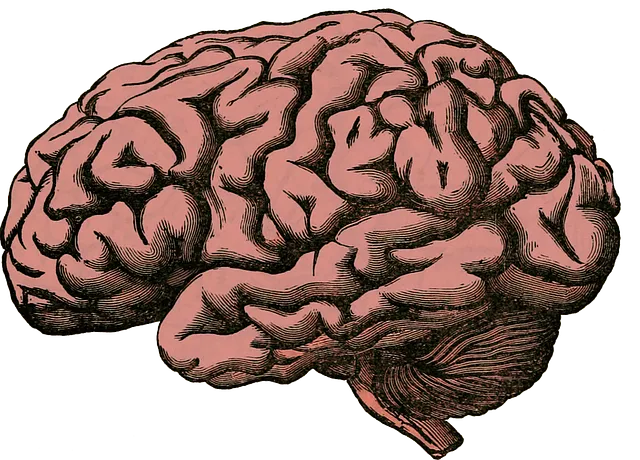Boulder Kaiser Permanente is revolutionizing mental healthcare with comprehensive self-assessment tools that prioritize holistic well-being. These digital platforms empower individuals to manage anxiety, depression, and stress through regular mental health evaluations, personalized interventions, and accessible resources. By integrating validated scales, clear instructions, and crisis guidance, these tools foster early intervention and destigmatize mental health issues. Boulder Kaiser Permanente's innovative approach enhances patient engagement, community outreach, and professional risk management, setting a standard for effective mental wellness promotion in today's digital era.
Mental wellness self-assessment tools are evolving to meet the growing demand for accessible, accurate, and personalized mental health evaluations. This article explores the development of these tools, highlighting key considerations from both a theoretical and practical standpoint. We examine the relevance of self-assessments in modern healthcare, using Boulder Kaiser Permanente’s innovative integration as a case study. Through design principles, digital solutions, and continuous improvement strategies, we aim to enhance mental wellness assessment experiences while fostering personalized care.
- Understanding Mental Wellness Self-Assessment: The Need and Relevance in Modern Healthcare
- Boulder Kaiser Permanente Mental Health: A Case Study on Integrating Self-Assessment Tools
- Designing Effective Self-Assessment Tools: Key Components for Accurate Evaluation
- Implementing Digital Solutions: Enhancing Accessibility and User Experience for Mental Wellness Assessment
- Continuous Improvement and Personalized Care: Strategies for Refining Self-Assessment Tools in Clinical Practice
Understanding Mental Wellness Self-Assessment: The Need and Relevance in Modern Healthcare

Mental wellness self-assessment tools play a pivotal role in modern healthcare, particularly in addressing the growing emphasis on holistic well-being. In today’s fast-paced world, where stress and mental health challenges are prevalent, such assessments serve as valuable resources for individuals seeking to navigate their emotional states and foster resilience. By empowering folks with insights into their mental wellness, these tools facilitate early intervention and proactive coping skills development, which is crucial in the context of Boulder Kaiser Permanente mental health services.
The relevance of self-assessment extends beyond individual benefit; it also informs community outreach program implementation. Effective assessments can pinpoint areas where emotional well-being promotion techniques are most needed, enabling targeted interventions and fostering a supportive environment. This proactive approach aligns with Boulder Kaiser Permanente’s commitment to comprehensive healthcare, ensuring that mental wellness is not only treated but actively promoted within the community.
Boulder Kaiser Permanente Mental Health: A Case Study on Integrating Self-Assessment Tools

Boulder Kaiser Permanente serves as a compelling case study for integrating self-assessment tools into mental health care. The healthcare provider recognized the importance of empowering individuals to take an active role in their mental wellness journey. They developed and implemented digital platforms that facilitate self-care routine development, encouraging patients to regularly assess their emotional well-being, stress levels, and overall mental health.
Through these innovative solutions, Boulder Kaiser Permanente not only improves patient engagement but also fosters compassion cultivation practices by providing accessible resources for managing anxiety, depression, and other common mental health concerns. By integrating self-assessment tools into their services, they’ve successfully elevated public awareness campaigns development around mental health, reducing stigma and encouraging individuals to seek support when needed.
Designing Effective Self-Assessment Tools: Key Components for Accurate Evaluation

Designing effective self-assessment tools is a crucial step in promoting mental wellness, particularly in initiatives led by organizations like Boulder Kaiser Permanente focused on mental health. These tools play a pivotal role in accurately evaluating an individual’s mental state and serving as a foundation for tailored interventions. Key components that ensure the effectiveness of these assessments include comprehensive question design, covering various aspects of mental health such as emotional well-being, stress management, and symptoms of common mental disorders like depression.
Incorporating validated scales and measures ensures reliability and validity in the assessment process. Moreover, providing clear and concise instructions, ensuring anonymity where necessary, and offering guidance on how to interpret results can enhance user experience and encourage honest responses. For instance, Boulder Kaiser Permanente might include Depression Prevention resources or Mental Wellness Journaling Exercise Guidance within their self-assessment tools to empower individuals with knowledge and skills for maintaining mental wellness proactively. Crisis Intervention Guidance could also be integrated to offer immediate support for those facing acute distress.
Implementing Digital Solutions: Enhancing Accessibility and User Experience for Mental Wellness Assessment

In today’s digital era, implementing innovative solutions like online platforms and mobile applications is transforming mental wellness self-assessment practices. These tools, developed with input from experts at institutions like Boulder Kaiser Permanente, offer enhanced accessibility to resources for emotional well-being promotion techniques. By providing easy-to-use interfaces, individuals can discreetly access assessments, promoting a more inclusive environment for those seeking support.
Digital solutions not only improve user experience but also enable comprehensive risk assessment for mental health professionals. Features such as automated data collection and advanced analytics allow for deeper insights into an individual’s emotional regulation, facilitating personalized interventions. This shift towards digital integration promises to revolutionize mental wellness management, making it more efficient, effective, and readily available to a diverse range of users.
Continuous Improvement and Personalized Care: Strategies for Refining Self-Assessment Tools in Clinical Practice

In the ever-evolving landscape of mental health care, continuous improvement and personalized care are paramount to enhancing the effectiveness of self-assessment tools. Organizations like Boulder Kaiser Permanente mental health departments play a crucial role in this process by integrating feedback from both patients and clinicians to refine these tools. This data-driven approach allows for tailored adjustments that cater to diverse patient needs and clinical contexts. By regularly updating assessment methods, mental health professionals can ensure they align with the latest research and best practices.
One strategic refinement involves incorporating Mental Wellness Coaching Programs Development elements into self-assessment routines. These programs offer valuable insights into patients’ coping mechanisms and personal growth journeys. Additionally, Risk Management Planning for Mental Health Professionals is essential to mitigate potential hazards associated with assessment tools, enhancing overall safety in clinical settings. Implementing Stress Reduction Methods alongside these assessments can further optimize patient experiences by creating a more relaxed and supportive environment, thereby encouraging honest self-reflection.
The development of mental wellness self-assessment tools, as demonstrated by Boulder Kaiser Permanente’s innovative approach, is a significant step towards improving access and personalizing care. By integrating these tools into modern healthcare, individuals can proactively manage their mental health and identify areas for improvement. Effective self-assessment tools, combined with digital solutions, enhance accessibility and user experience, ensuring that more people have the resources to support their mental wellness journey. Continuous improvement strategies are vital to refining these tools, allowing for personalized care and better clinical outcomes in the ever-evolving landscape of healthcare.






